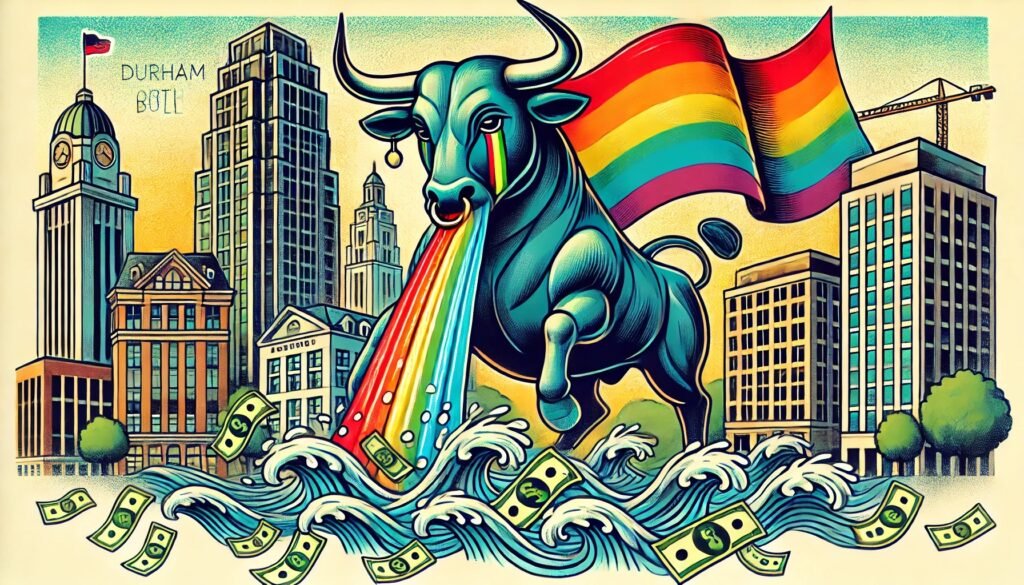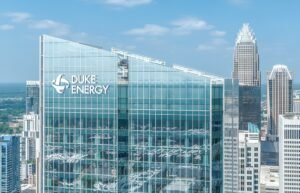When I packed up my life in Florida and moved to Durham, North Carolina, I was chasing a dream—not just for myself, but for a better society. I had spent years living under what I felt was a state consumed by corporate greed, where the little guy—mom-and-pop businesses, working families, and individuals like me—was trampled underfoot by policies that served the rich and powerful.
Durham, I was told, was different. People spoke of a progressive city, one where the everyday person mattered. A city where economic development didn’t have to come at the expense of community, and where leaders cared as much about affordable housing and local businesses as they did about shiny new developments.
When Nate Baker was elected to the City Council last year, I saw a glimmer of that hope. Here was a planner with big ideas about economic equity and the kind of grassroots engagement that had long been absent from local politics in my home state. His campaign platform, centered on protecting small businesses, creating worker-owned enterprises, and tackling systemic inequalities, felt like exactly what Durham—and the country—needed.
But after a few months of living and working here, that hope is starting to feel fragile.
Durham’s Booming Economy, But at What Cost?
I got a job at this very paper, the Bull City Citizen, hoping to dive deep into the city’s vibrant community and learn from its residents. What I’ve found is a tale of two Durhams. On the surface, there’s the thriving downtown filled with trendy restaurants and flashy developments. But beneath that lies a growing divide—one that feels eerily similar to the problems I fled in Florida.
Small businesses are closing at an alarming rate. Since the pandemic, 82 businesses in downtown Durham have shuttered, unable to keep up with rising rents, parking costs, and construction disruptions. Even beloved institutions like Beyu Caffe—a downtown fixture since 2009—have had to close their doors.
Meanwhile, many longtime residents, particularly in historically Black neighborhoods, feel they’re being priced out of the city they’ve called home for generations. The rising cost of living, driven by gentrification and unchecked development, has made it harder for families to hold onto their homes and maintain a standard of living.
I’ve spoken with residents who say they still hold out hope that Durham can live up to its progressive promise. Others, however, are exhausted. They’ve watched their neighborhoods change seemingly overnight, as wealthier newcomers push out working-class families.
Is Durham Heading Down the Same Path?
I worry Durham is heading down the same road I saw in Florida—a city that looks progressive on paper but in practice caters to corporate interests and the wealthy at the expense of everyone else. The warning signs are there: a downtown that’s increasingly unaffordable, rising economic inequality, and policies that seem to prioritize flashy developments over the needs of everyday people.
The statistics back up what I’ve heard on the ground. Roughly 11.2% of Durham residents live below the poverty line, with Black residents disproportionately affected at a rate of 13.6% compared to 5.2% for White residents. Housing costs have soared, and low-income families struggle to find affordable homes in a city where demand far outstrips supply.
A Glimmer of Hope in Grassroots Leadership
Still, I find myself clinging to the same hope that brought me here. Leaders like Nate Baker are a reason for optimism. His focus on redirecting economic development funds toward local entrepreneurs and low-income residents offers a tangible path forward. His advocacy for worker-owned businesses and union-friendly policies could help ensure that wealth generated in Durham stays in Durham, rather than lining the pockets of outside investors.
But even Baker faces an uphill battle. The forces of gentrification and corporate greed are powerful, and they’re often disguised as “progress.” If Durham truly wants to be the progressive city it claims to be, its residents and leaders must prioritize the people who have built this community over the developers looking to profit from it.
A Call to Action
Durham still has a chance to be the city I dreamed it would be when I left Florida—a city that puts people over profit, community over corporations, and equity over unchecked growth. But it will take all of us—leaders like Nate Baker, residents fighting to hold onto their homes, and even newcomers like me—to make that vision a reality.
We cannot let Durham become another city that sacrifices its soul for the sake of development. Instead, we must fight for a city that lifts up its residents, supports its small businesses, and ensures that progress truly benefits everyone.
I moved to Durham for hope. Now, I’m calling on all of us to keep that hope alive.
Emma Brown is a recent transplant to Durham and a staff writer at the Bull City Citizen. She can be reached on Twitter @whocalledemma.












